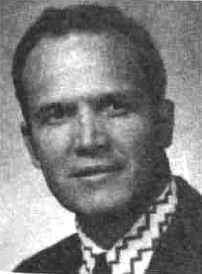A Quote by Maltbie Davenport Babcock
The world is God's workshop; the raw materials are His; the ideals and patterns are His; our hands are "the members of Christ," our reward His recognition. Blacksmith or banker, draughtsman or doctor, painter or preacher, servant or statesman, must work as unto the Lord, not merely making a living, but devoting a life. This makes life sacramental, turning its water into wine. This is twice blessed, blessing both the worker and the work.
Quote Topics
Related Quotes
Christ used the flesh and blood of Mary for his life on earth, the Word of love was uttered in her heartbeat. Christ used his own body to utter his love on earth; his perfectly real body, with bone and sinew and blood and tears; Christ uses our bodies to express his love on earth, our humanity. A Christian life is a sacramental life, it is not a life lived only in the mind, only by the soul... Our humanity is the substance of the sacramental life of Christ in us, like the wheat for the host, like the grape for the chalice.
Blessed be the God and Father of our Lord Jesus Christ, who has blessed us in Christ with every spiritual blessing in the heavenly places . . . He destined us for adoption as his children through Jesus Christ, according to the good pleasure of his will, to the praise of his glorious grace that he freely bestowed on us in the Beloved.
Our Lord did not want to remain on earth only through His grace, His truth or His words; He remains in person. We possess the same Lord Jesus Christ Who lived in Judea, although under a different form of life. He has put on a sacramental garment, but He does not cease being Jesus, the Son of God and the Son of Mary.
For those who have already experienced the grace of Almighty God through faith in the Lord Jesus Christ, prayer becomes the catalyst for fellowship with the Lord of our souls, redeemed by his blood. By tapping into the channel by which we commune with the One who calls his children “friends,” we can receive his strength in our weakness; his guidance in our steps; and his mercy when we stumble along life's path.
[Christ's] mission and work it is to help against sin and death, to justify and bring life. He has placed his help in baptism and the Sacrament [i.e., communion/Eucharist/Lord's supper], and incorporated it in the Word and preaching. To our eyes Baptism [capitalized in original] appears to be nothing more than ordinary water, and the Sacrament of Christ's body and blood simple bread and wine, like other bread and wine, and the sermon, hot air from a man's mouth. But we must not trust what our eyes see.
"None is good, save One, that is, God", as the Lord Jesus bath said. The rest are only tools in His hands. "Gloria in Excelsis", "Glory unto God in the highest", and unto men that deserve, but not to such an undeserving one like me. Here "the servant is not worthy of the hire"; and a Fakir, especially, has no right to any praise whatsoever, for would you praise your servant for simply doing his duty?
Had He not emerged from the tomb all our hopes, all our salvation would be lying dead with Him unto this day. But as we see Him issue from the grave we see ourselves issue with Him in newness of life. Now we know that His shoulders were strong enough to bear the burden that was laid upon them, and that He is able to save to the uttermost all that come unto God through Him. The resurrection of Christ is thus the indispensable evidence of His completed work, His accomplished redemption.
The Bible is one long story of God meeting our rebellion with His rescue, our sin with His salvation, our guilt with His grace, our badness with His goodness. The overwhelming focus of the Bible is not the work of the redeemed but the work of the Redeemer. Which means that the Bible is not first a recipe for Christian living but a revelation book of Jesus who is the answer to our un-Christian living.
Our work is not to save souls, but to disciple them. Salvation and sanctification are the work of God's sovereign grace, and our work as His disciples is to disciple others' lives until they are totally yielded to God. One life totally devoted to God is of more value to Him than one hundred lives which have been simply awakened by His Spirit. As workers for God, we must reproduce our own kind spiritually, and those lives will be God's testimony to us as His workers. God brings us up to a standard of life through His grace, and we are responsible for reproducing that same standard in others.
Workers for Christ are never to think, much less to speak, of failure in their work. The Lord Jesus is our efficiency in all things; His Spirit is to be our inspiration; and as we place ourselves in His hands, to be channels of light, our means of doing good will never be exhausted. We may draw upon His fulness, and receive of that grace which has no limit.
A soldier surrounded by enemies, if he is to cut his way out, needs to combine a strong desire for living with a strange carelessness about dying. He must not merely cling to life, for then he will be a coward, and will not escape. He must not merely wait for death, for then he will be a suicide, and will not escape. He must seek his life in a spirit of furious indifference to it; he must desire life like water and yet drink death like wine.





































